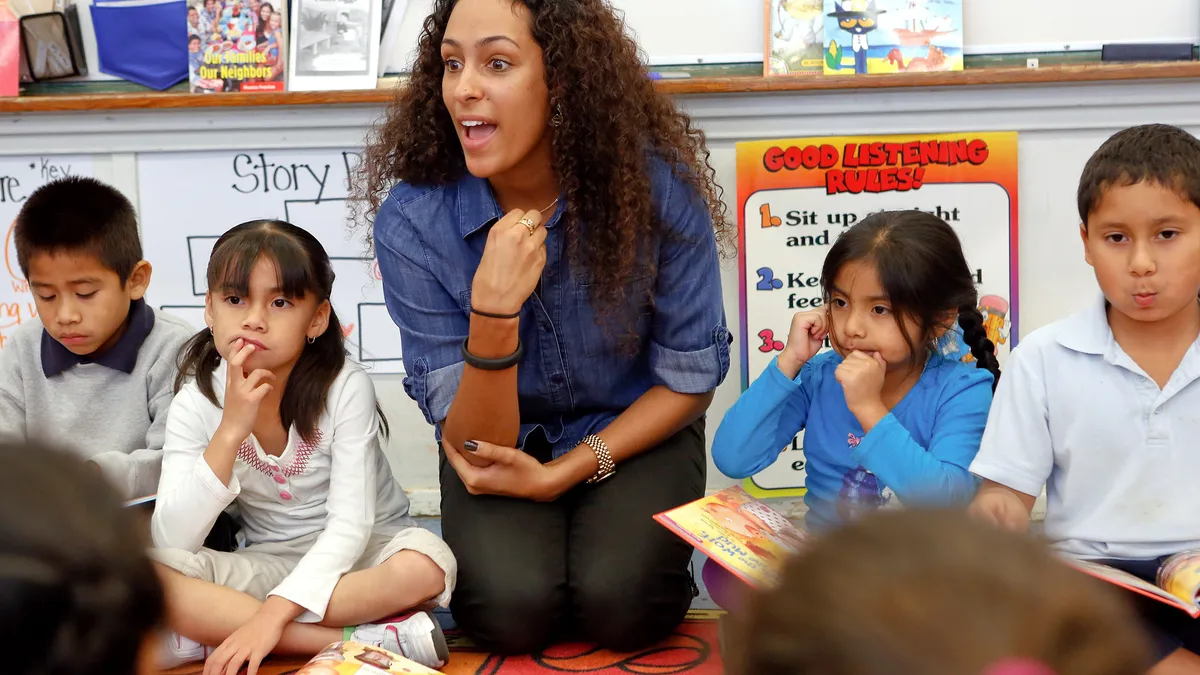Dive Brief:
- To combat teacher shortages, some districts are looking abroad to recruit — a move that a number of their peers, like North Carolina's Cumberland County Schools, have long found can also give students new perspectives on other cultures and ideas, District Administration reports.
- This approach often requires districts to work with third-party recruiters or state agencies to help assess a candidate's qualifications, and the intended tenure of the hires can extend from the three years granted under a J-1 visa to a more permanent basis.
- There are, however hurdles to the program, with uncertainty abounding in regard to the Trump administration's approach to immigration and visas, as well as legal action taken over recruitment fees and — according to a 2009 AFT report — visa fraud, low wages and contracts alleged to come close to indentured servitude.
Dive Insight:
In an increasingly connected world, multicultural experiences can be of great value for students' future professional and personal lives. In particularly homogenous rural areas of the U.S., it's especially unlikely that many students will be exposed to a number of cultures outside their own.
Should securing visas become an issue under the current administration, there are also other options to bring international educators into the classroom. One way educators can do this might be finding a peer abroad to partner with and bring them in via Skype during a particular project or lesson.














